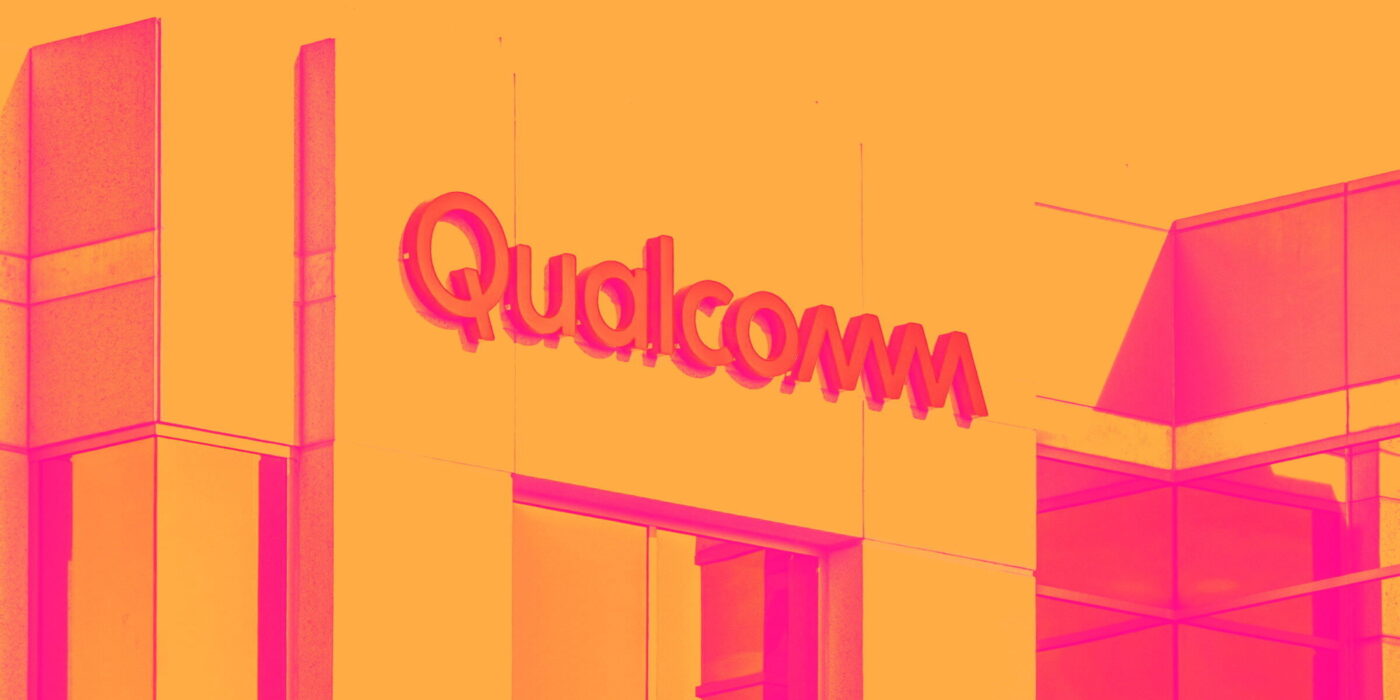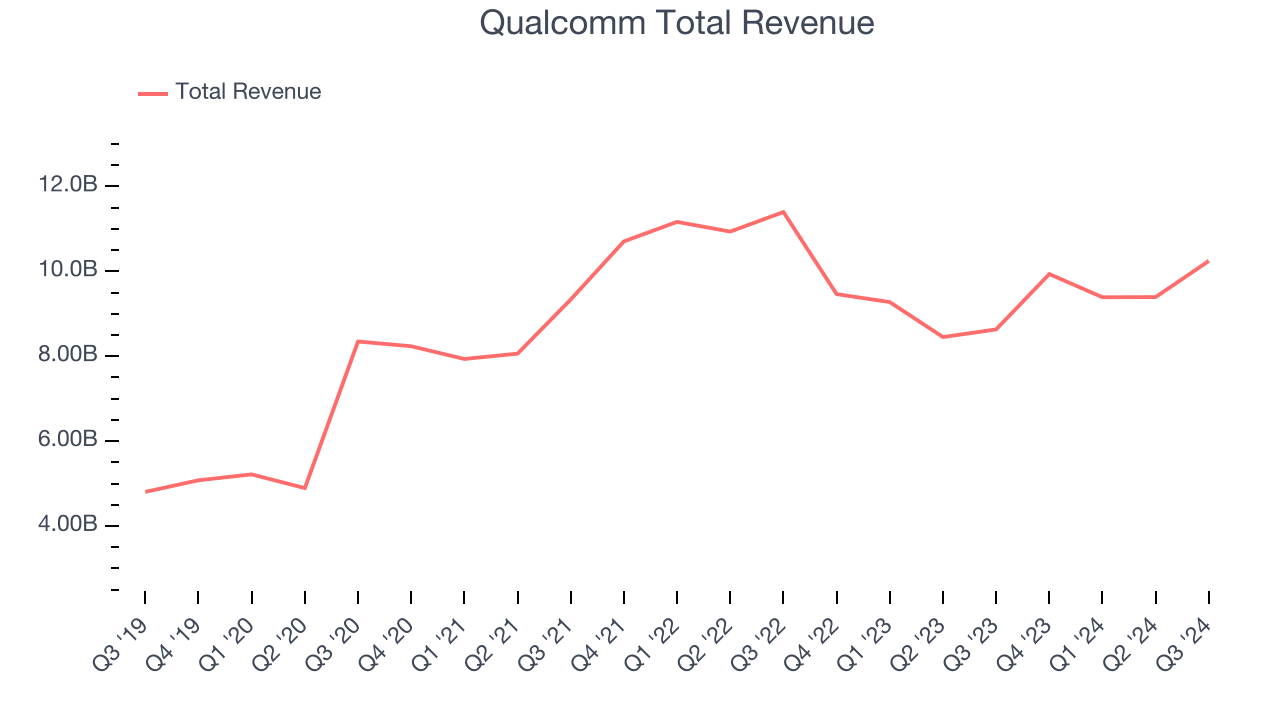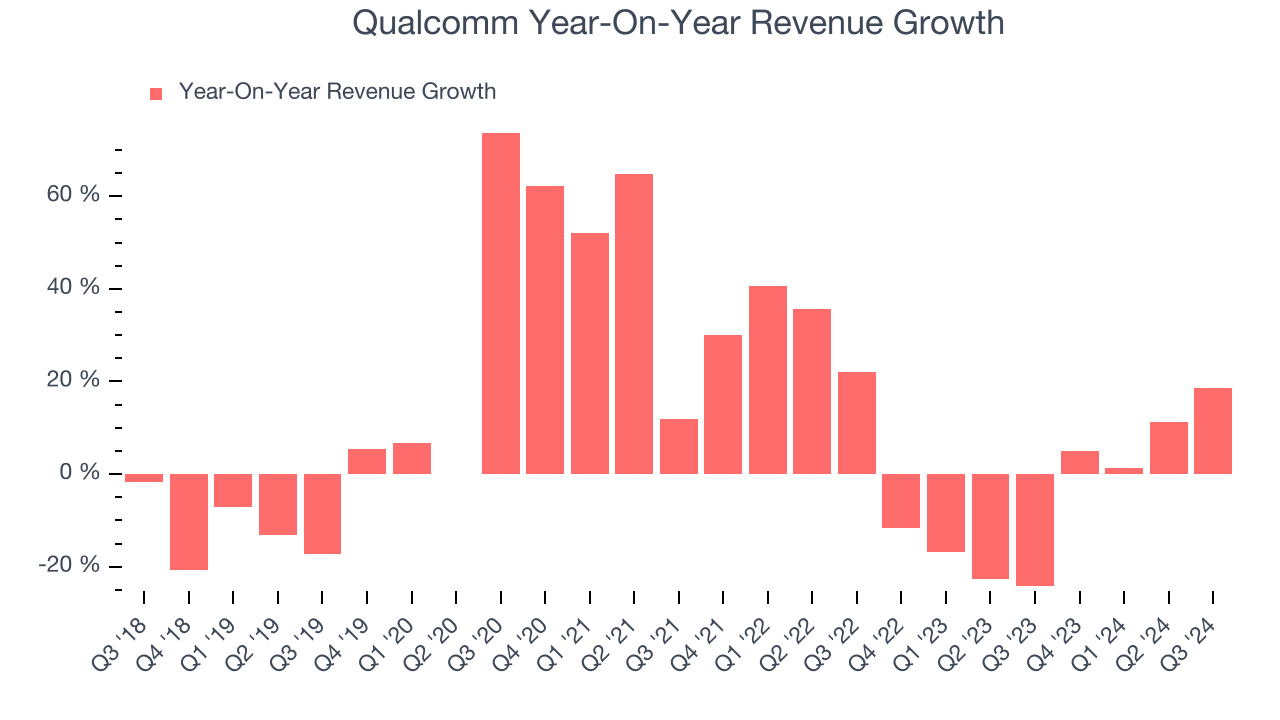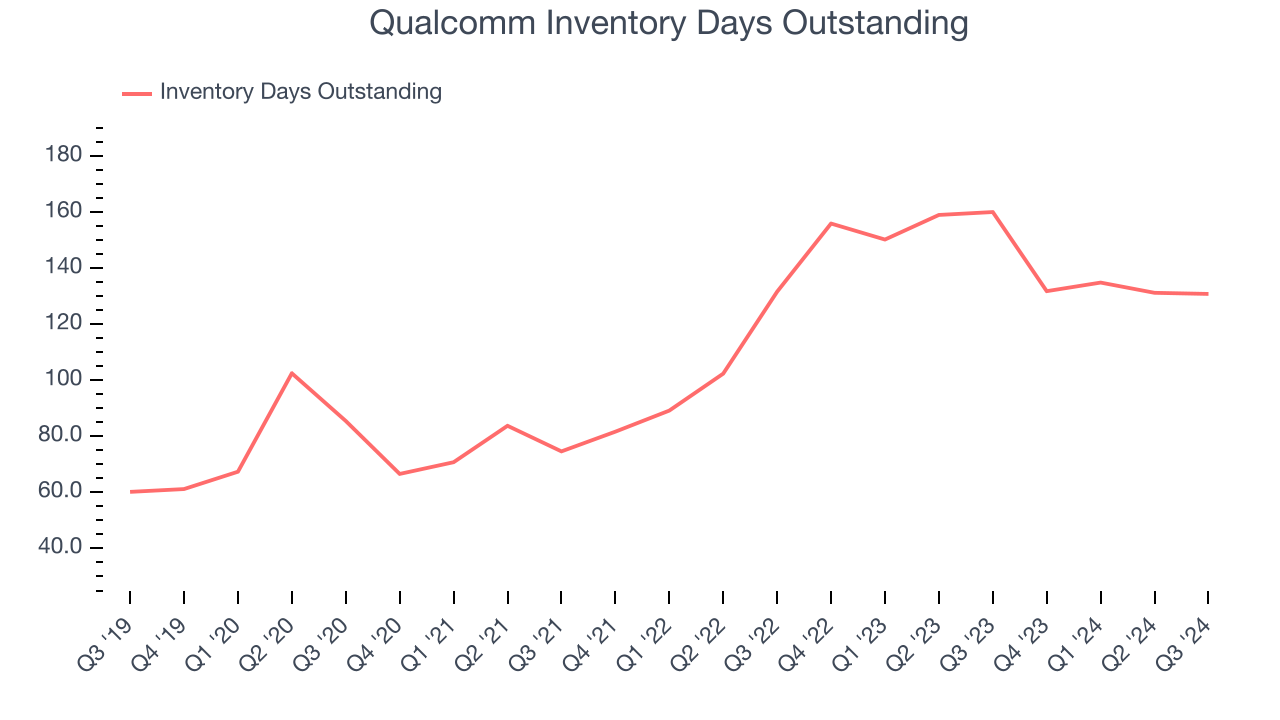
Wireless chipmaker Qualcomm (NASDAQ: QCOM) beat Wall Street’s revenue expectations in Q3 CY2024, with sales up 18.7% year on year to $10.24 billion. Guidance for next quarter’s revenue was optimistic at $10.9 billion at the midpoint, 2.7% above analysts’ estimates. Its non-GAAP profit of $2.69 per share was also 4.7% above analysts’ consensus estimates.
Is now the time to buy Qualcomm? Find out by accessing our full research report, it’s free.
Qualcomm (QCOM) Q3 CY2024 Highlights:
- Revenue: $10.24 billion vs analyst estimates of $9.93 billion (3.1% beat)
- Adjusted EPS: $2.69 vs analyst estimates of $2.57 (4.7% beat)
- Adjusted Operating Income: $3.49 billion vs analyst estimates of $3.34 billion (4.4% beat)
- Revenue Guidance for Q4 CY2024 is $10.9 billion at the midpoint, above analyst estimates of $10.61 billion
- Adjusted EPS guidance for Q4 CY2024 is $2.95 at the midpoint, above analyst estimates of $2.87
- Gross Margin (GAAP): 56.4%, up from 55% in the same quarter last year
- Inventory Days Outstanding: 131, in line with the previous quarter
- Operating Margin: 25.2%, up from 16.3% in the same quarter last year
- Market Capitalization: $184.8 billion
Company Overview
Having been at the forefront of developing the standards for cellular connectivity for over four decades, Qualcomm (NASDAQ: QCOM) is a leading innovator and a fabless manufacturer of wireless technology chips used in smartphones, autos and internet of things appliances.
Processors and Graphics Chips
The biggest demand drivers for processors (CPUs) and graphics chips at the moment are secular trends related to 5G and Internet of Things, autonomous driving, and high performance computing in the data center space, specifically around AI and machine learning. Like all semiconductor companies, digital chip makers exhibit a degree of cyclicality, driven by supply and demand imbalances and exposure to PC and Smartphone product cycles.
Sales Growth
Reviewing a company’s long-term performance can reveal insights into its business quality. Any business can have short-term success, but a top-tier one sustains growth for years. Thankfully, Qualcomm’s 15% annualized revenue growth over the last five years was impressive. This is encouraging because it shows Qualcomm’s offerings resonate with customers, a helpful starting point. Semiconductors are a cyclical industry, and long-term investors should be prepared for periods of high growth followed by periods of revenue contractions.

We at StockStory place the most emphasis on long-term growth, but within semiconductors, a half-decade historical view may miss new demand cycles or industry trends like AI. Qualcomm’s recent history marks a sharp pivot from its five-year trend as its revenue has shown annualized declines of 6.1% over the last two years. 
This quarter, Qualcomm reported year-on-year revenue growth of 18.7%, and its $10.24 billion of revenue exceeded Wall Street’s estimates by 3.1%. Management is currently guiding for a 9.7% year-on-year increase next quarter.
Looking further ahead, sell-side analysts expect revenue to grow 7.7% over the next 12 months, an improvement versus the last two years. This projection is above average for the sector and illustrates the market thinks its newer products and services will fuel higher growth rates.
Today’s young investors won’t have read the timeless lessons in Gorilla Game: Picking Winners In High Technology because it was written more than 20 years ago when Microsoft and Apple were first establishing their supremacy. But if we apply the same principles, then enterprise software stocks leveraging their own generative AI capabilities may well be the Gorillas of the future. So, in that spirit, we are excited to present our Special Free Report on a profitable, fast-growing enterprise software stock that is already riding the automation wave and looking to catch the generative AI next.
Product Demand & Outstanding Inventory
Days Inventory Outstanding (DIO) is an important metric for chipmakers, as it reflects a business’ capital intensity and the cyclical nature of semiconductor supply and demand. In a tight supply environment, inventories tend to be stable, allowing chipmakers to exert pricing power. Steadily increasing DIO can be a warning sign that demand is weak, and if inventories continue to rise, the company may have to downsize production.

This quarter, Qualcomm’s DIO came in at 131, which is 22 days above its five-year average, suggesting that the company’s inventory levels are higher than what we’ve seen in the past.
Key Takeaways from Qualcomm’s Q3 Results
We enjoyed seeing Qualcomm exceed analysts’ EPS expectations this quarter. We were also glad its revenue outperformed Wall Street’s estimates. Looking ahead, revenue and EPS guidance were ahead of expectations as well. Overall, we think this was a very good quarter, especially considering choppy earnings in the semiconductor space this quarter. The stock traded up 7.7% to $186.58 immediately following the results.
Qualcomm may have had a good quarter, but does that mean you should invest right now? The latest quarter does matter, but not nearly as much as longer-term fundamentals and valuation, when deciding if the stock is a buy. We cover that in our actionable full research report which you can read here, it’s free.




